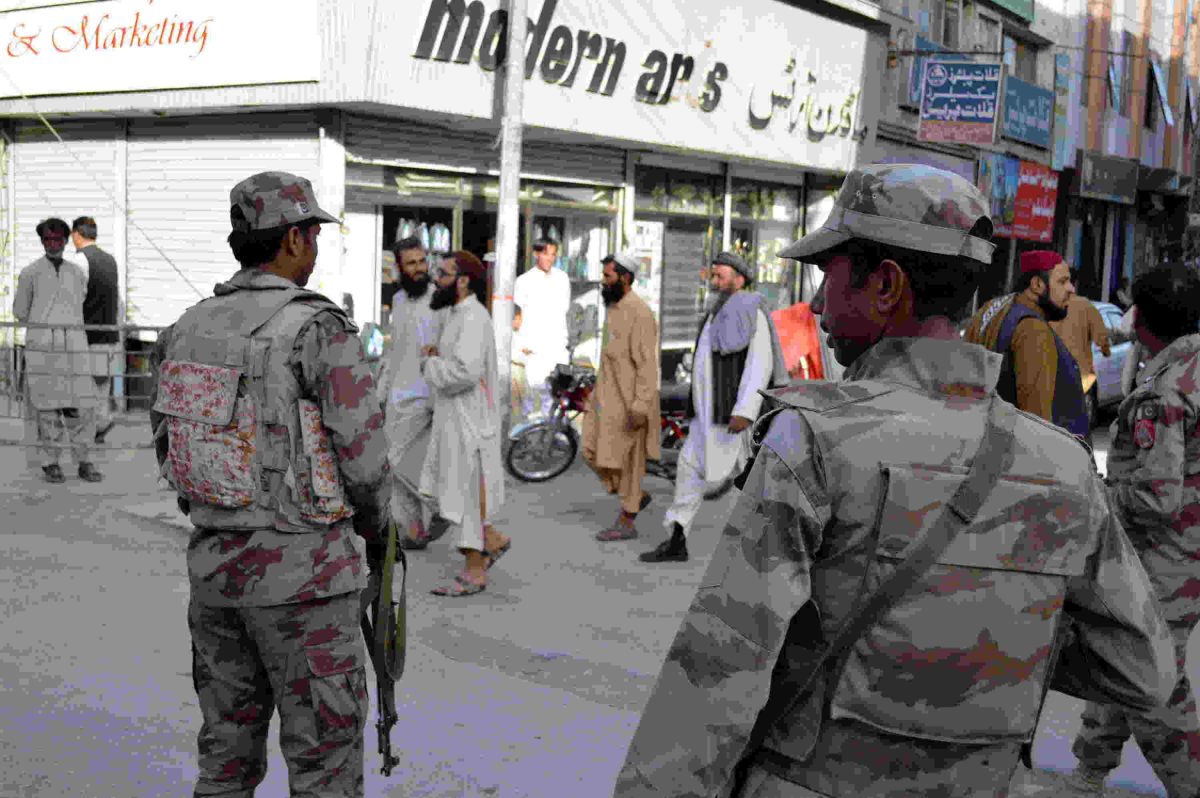Repeated border flare-ups in the last few weeks have exacerbated the tensions between Pakistan and Iran threatening to further destablise an already volatile region. Various agencies have reported the killing of at least two people in a shooting incident at the common border of the two countries, triggering large scale protests in Sistan-Baluchistan, the second largest province of the 31 provinces of Iran.
Iranian Foreign Ministry Spokesperson Saeed Khatibzadeh said the country’s competent authorities are "working on the case of recent clashes with fuel smugglers" in a southeastern region near the common border with Pakistan.
Khatibzadeh noted that Pakistan has transferred the body of an Iranian national to Iran and that the border guards and the Iranian Foreign Ministry will take the necessary measures based on the results of the reports.
Arab News had reported two days ago that Mohammad Hadi Marashi, the Deputy Governor of the Sistan and Baluchistan province, had accused Pakistani forces of opening fire at a gathering of fuel smugglers trying to cross back into Iran, killing one and wounding four.
Pakistan is currently in the process of fencing off its 959 km long border with Iran. Country's Interior Minister Sheikh Rashid Ahmed, on a visit to Balochistan last week, had stated that 40 per cent work on fencing has already been done and the rest will be completed by the end of this year.
The border areas of Sistan-Baluchistan and Pakistan's Balochistan witness not only intense trade activity but also smuggling and violent clashes.
While Rashid said that both countries "enjoyed cordial relations" and the fencing is being done to "provide maximum legal crossing and trade facilities", Pakistan's top military officers are singing a different tune, accusing Iran of being a key backer of the Baloch freedom movement.
"If the threat of FATF is averted, we will go inside Iran and take action. Iran is the biggest enemy of Pakistan which has a direct hand in the instability of Balochistan," Major General Aymen Bilal Safdar, the new Inspector General of Frontier Corps (FC), Balochistan South, was quoted as saying by Sangar Publication, a Baloch media group, during a jirga (a traditional assembly of leaders) at the Frontier Corps headquarters in Turbat, last month.
"We have a good amount of money for this task, so let us know how much you need because we can't wait any longer for Iran to create unrest in Balochistan, conspire against CPEC and stab us in the stomach in the name of friendship," the General posted in Kech District was quoted as saying by the Baloch publication on crushing the Baloch resistance in six months to open pathways for the controversial China Pakistan Economic Corridor (CPEC) — the flagship of Beijing’s Belt and Road Initiative.
Iran has on the other hand expressed repeated concerns over its military forces in the border areas being attacked by terrorist groups coming from Afghanistan and Pakistan.
Earlier this month, two Iranian border guards – the last from a group of 14 who had been held hostage by Jaish-ul-Adl terrorist group in Pakistan since 2018 – returned home after what was referred as a 'surgical strike' deep inside the Pak territory by several media organisations.
"A successful operation was carried out last Tuesday night to rescue two kidnapped border guards who were taken as hostages by Jaish ul-Adl organization two and a half years ago,” Turkey's Anadolu Agency quoted a statement from Iran’s elite Revolutionary Guards (IRGC) as saying in a report.
It is not for the first time that tensions have escalated between the two countries.
Four years ago, Pakistani media had reported that the Iranian armed forces had warned Islamabad that Tehran would hit bases inside Pakistan if the government does not confront militants who carry out cross-border attacks.
This was after 10 Iranian border guards were killed by militants from Jaish-al-Adl militant group with long-range guns, fired from inside Pakistan.
Pakistan's leading daily Dawn had reported that the same group had earlier claimed responsibility for attacks that killed eight border guards in April 2015 and 14 border guards in October 2013.




















